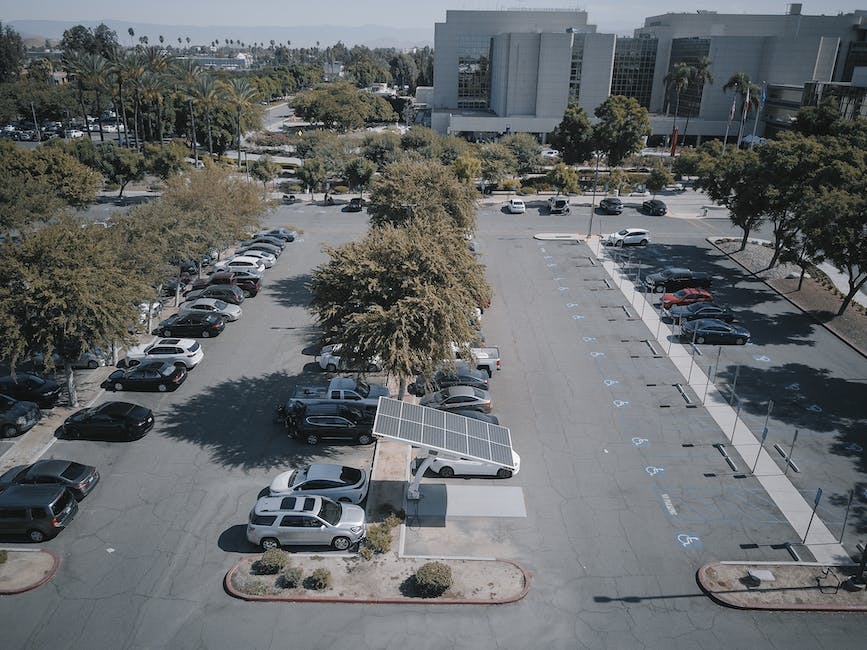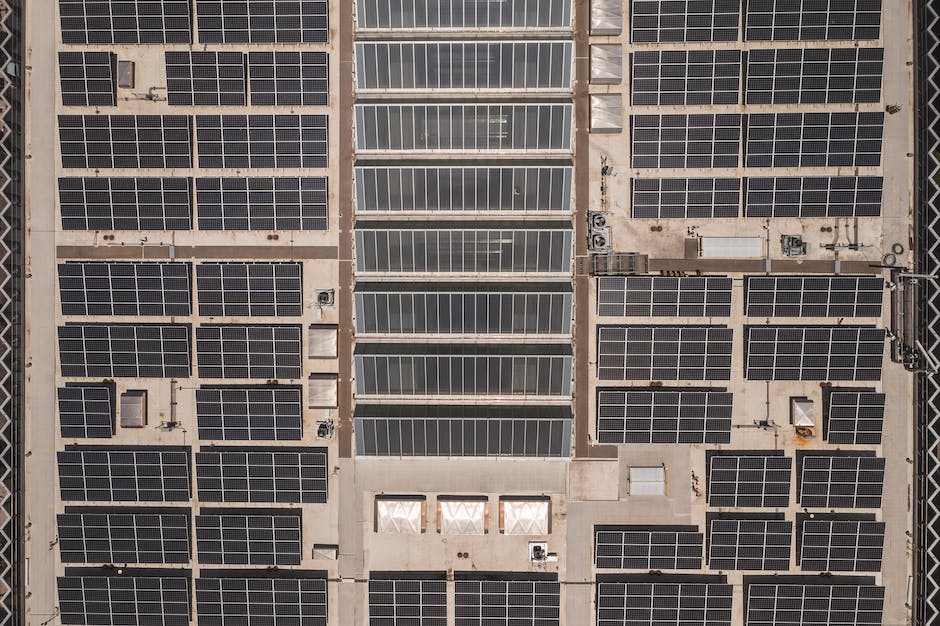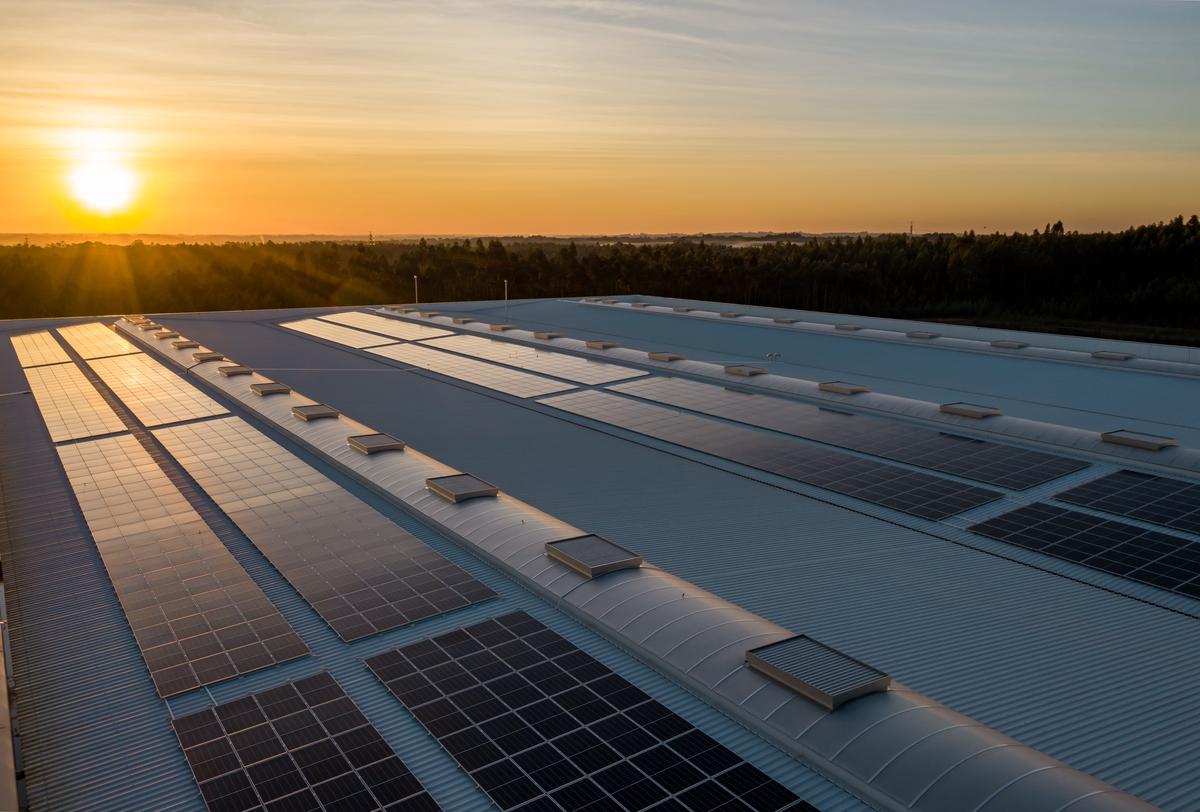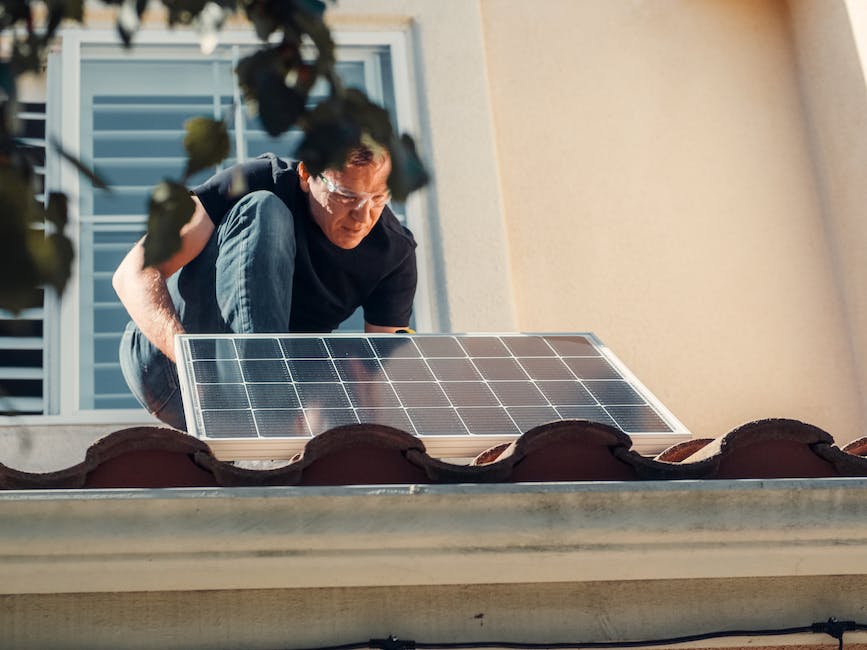The advent of sustainable technology in energy utilization has significantly transformed the landscape of homeownership and rental property management. At the summit of these energy-efficient innovations lie solar panels which have stirred a new wave of discussions around lease agreement structures and the legalities surrounding their installation and usage in rental properties. This discourse brings to the fore, the requisite knowledge on the basic workings of solar panels, their installation process on rental properties, the impacts their presence on a property could have on the terms of a lease agreement, and the laws and policies that guide such installations.
The Basics of Solar Panels and Their Functioning
Understanding Solar Panels
Solar panels, also known as photovoltaic panels, absorb sunlight as their source of energy to generate electricity or heat. Composed of several smaller units called photovoltaic cells, each panel amasses a significant amount of sunlight and transforms it into usable electricity. A single solar panel is made up of many small photovoltaic solar cells. These have semiconductors made out of silicon which absorbs the sun’s light. When this light is absorbed, energy is infused to the silicon cells resulting in a flow of electricity.
Impact of Solar Panels on Residential Rental Agreements
When it comes to rental agreements, solar panels have the potential to complicate the terms. If a landlord installs solar panels on the rental property, provisions addressing the maintenance, repair, and splitting the benefits of the solar panels between the landlord and tenant may need to be addressed. Furthermore, the cost of electricity and the responsibility of paying the utility bills may be affected once solar panels are introduced into the equation.
Division of Benefits
One of the main discrepancies that may arise between landlords and tenants when it comes to solar panels concerns the division of their benefits. Typically, solar panels reduce electric bills or even generate an income through feed-in-tariffs or solar renewable energy credits. In such cases, it should be clearly outlined in the rental agreement who will receive these benefits or how they’ll be shared.
Maintenance and Repair
There is also the issue of responsibility for maintenance and repairs of the solar panels. This should be properly reflected in the rental agreement to avoid potential disputes. Generally, it would be the landlord’s responsibility, similar to other property fixtures. However, if the damage is attributed to the tenant, provisions might have to be created to handle such situations.
Addressing Utility Bills
The introduction of solar panels typically means a decrease in electricity bills, which could possibly lead to a re-evaluation of how utility costs are divided between the landlord and tenant. The rental agreement might need to be updated to reflect this new reality, stating whether the landlord will lower the rent or if the tenant will receive a direct reduction on their electric bill.
Legislation and Solar Panels in Rental Properties
Legislation around solar panels on rental properties can also vary greatly from one state to another, further complicating matters. Some states provide tax credits, financial incentives, or grants for installing solar panels, which a landlord may want to take advantage of. However, these programs often come with their own set of rules and requirements, which may affect how the benefits of solar panels are divided in a rental agreement.
In a nutshell, the introduction of solar panels onto rental properties introduces multifaceted implications that revolutionize traditional rental agreements. They harbor many potential advantages while simultaneously injecting a layer of complexity into leases. It is thus paramount that both landlords and tenants grasp these effects, foster open and clear communication, and ensure that all terms related to solar panels are explicitly outlined in the lease agreement.

Installation of Solar Panels on Rental Properties
Perspectives for Property Owners
For landlords, the prospect of incorporating solar panels into your rental property can be attractive for a range of reasons. It not only boosts the property’s market value, but it can also lead to decreased utility expenses, particularly if the cost of electricity is incorporated in the rent. Some landlords might even find themselves profiting from surplus electricity that can be sold back to the power grid.
However, before commencing this potentially profitable endeavor, landlords need to weigh several factors. These include the necessity for planning permissions and the property’s structural aptitude for accommodating solar panels. Landlords also need to consider the initial investment involved with solar panel installation, which typically falls between $15,000 and $25,000. These upfront costs, however, can often be counterbalanced by federal tax credits, local incentives, or through leveraging solar leasing options.
Impact on Rental Agreements
The installation of solar panels can have implications for rental agreements. If the landlord plans to pass the energy savings onto their tenants, this should be stipulated in the lease agreement. The lease may need to detail who is responsible for maintaining and repairing the solar panels. It’s crucial for landlords to consult with a knowledgeable real estate attorney to revise rental agreements to accommodate for these changes.
Renters’ Perspective
From a renter’s perspective, solar panels can help reduce utility costs, making the property more attractive. However, potential tenants may have concerns about the aesthetics of the panels and whether they may be liable for any damage or maintenance issues. These details should be clearly communicated in the rental agreement to assure prospective tenants and prevent any disputes down the line.
Case Study: Solar Panels in San Diego
For example, a landlord in San Diego decided to install solar panels on his three rental properties. He saw an immediate increase in his properties’ value and could charge higher rent to prospective tenants attracted by the idea of lower utility bills. The landlord was also able to take advantage of a federal tax credit, which covered 30% of the installation costs.
In the rental agreement, the landlord specified that he was responsible for any necessary maintenance or repairs to the solar panels. This provided peace of mind for his tenants and clear lines of responsibility should any issues arise.
Benefits and Risks
As with any investment, installing solar panels on rental properties comes with its own set of benefits and risks. The obvious benefits are the potential savings on utility costs and the attraction of environmentally conscious renters. However, landlords need to consider the upfront cost, potential damage to the panels, and the possibility of changes in utility rates or energy policies.
In Summary
For renters and landlords alike, the inclusion of solar panels in rental agreements is a matter of significant importance. A mutual understanding about the obligations and responsibilities relating to the solar installation is crucial. A well-constructed lease agreement may not only discourage potential disputes, but also ensure a beneficial setup for all parties involved in the installation of solar panels.

Impacts on Rental Agreements
Considerations for Rent Increase
Introducing solar panels to a rental property can potentially boost the property’s value. This increase in worth may lead to a justified rise in rent. Nevertheless, any rent increase should take into consideration the substantial initial cost of installing the solar system and the resulting benefits, like reduced utility charges for tenants. So while rents might go up, it’s worth factoring in that the cost savings from lower energy bills could balance this out, resulting in a win-win scenario for both landlord and tenant.
Solar Panels and Lease Terms
When solar panels are installed on rented properties, the rental agreement or lease might need to be modified to address the change. Clauses regarding potential benefits, the handling of system servicing or upgrades, or possible impacts on homeowners insurance might be added. The landlord and the tenant might need to discuss who reaps the rewards of the energy savings or energy credits received.
Maintenance and Repairs
The matter of maintenance and repair responsibilities for the solar panel system is a crucial one. Typically, the property owner is responsible for maintaining and repairing the system. But, specific responsibilities might be outlined in the lease. This way, any uncertainties regarding the maintenance of the system are clarified. The lease should also detail who will be held accountable if damages occur.
Energy Savings
One of the significant benefits of solar power is its potential for reducing utility costs. Depending on the specifics of the lease agreement, tenants could greatly benefit from these reductions. In some cases, the savings could even offset a potential rent increase. The exact distribution of the savings should be explicitly stated in the lease to avoid conflict in the future.
Insurance Considerations
Adding solar panels to a property could impact insurance. Panels add value to the property and, in some cases, might call for increased coverage. Like the points mentioned above, any changes to insurance that may affect the tenant should be agreed upon and detailed in the lease agreement.
Resale Value and Long-term Leases
Solar panels can increase a property’s desirability, attractiveness, and monetary value, especially in regions where green energy and sustainable living are highly prized. For renters with long-term lease agreements, this could ensure stable rental prices. For property owners, it could ensure high-value resale and return on the considerable initial investment.
Subleasing and Solar Energy
In certain scenarios, the landlord might choose to sell excess solar power back to the grid. This arrangement should ideally be accounted for in the lease agreement to avoid future disputes. Additionally, in the case of tenant subleasing, the lease agreement should stipulate who has the right to any profits made from the sale of excess energy.
When it comes to integrating solar panels into rental properties, a frank and meticulous discussion between the property owner and the renter becomes paramount. A mutual agreement must be established concerning the allocation of costs, benefits, and duties to ensure a beneficial scenario for both parties. This collaboration may facilitate making the shift towards sustainable energy solutions while navigating the legalities and financial implications of the process.

Photo by logvisuals on Unsplash
Legal Issues and Policies Surrounding Solar Installations on Rentals
Understanding Your Rights And Responsibilities
Solar panels present an effective strategy for carbon footprint reduction and energy bill savings. However, their incorporation into leased properties contributes to a complex legal landscape. Various laws and policies govern the rights and obligations associated with solar panel installation. Predominantly, landlords hold the reins when it comes to modifications to their property. Yet, numerous jurisdictions actually stimulate negotiation between landlords and renters concerning solar panel integration.
Landlords, possessing full control over their properties, bear the right to determine the feasibility of solar panel installation. If they choose to proceed, landlords are obliged to provide tenants with prior notification. The length of this notice period is subject to variation based on jurisdiction, granting the tenant ample time to brace for potential disturbances co-occurring with the installation process.
On the other hand, tenants may express an inclination towards having solar panels installed to take advantage of the energy cost savings. In such a scenario, obtaining the landlord’s approval before initiating the project is a must. More often than not, landlords may assent to the installation on the condition that the tenant agrees to bear the associated expenses and to restore the property to its original state upon lease expiry.
Legal Provisions and Policies
State and local laws heavily influence how solar panels impact rental agreements. Some states have laws promoting renewable energy use that landlords can leverage. The Database of State Incentives for Renewables and Efficiency (DSIRE) provides a rich resource of state level incentives and policies that can be beneficial to both landlords and tenants.
Additionally, some states, like California, have enacted solar access laws that protect a property owner’s right to sunlight. In other words, your neighbor can’t intentionally block the sunlight needed for your solar panels. These laws also ensure that both landlords and tenants can benefit from solar energy systems.
Rental Agreements and Solar Panels
Incorporating policy about solar panel installation into the rental agreement is the best way to prevent misunderstandings. Having clear terms about who takes responsibility for the installation, maintenance, and removal costs, as well as who benefits from the installation, would prevent potential conflicts. The agreements can also cover how the energy savings are split between the landlord and tenant, or whether the landlord increases the rent due to the new installation.
It is also prudent to include terms within the agreement in case of unforeseen damages to the solar panels. Considering that solar panels are costly, having a provision on who is responsible for repairs and replacements would help reduce potential disputes.
Net Metering Policies
Net metering policies allow consumers who generate some or all of their own electricity to use that electricity anytime, instead of when it is generated. For rental properties, such policies determine who receives the credits from the solar installation. Depending on the lease agreement, if the tenant pays for the electricity, they may receive the credits. If the landlord pays, they get the credits. Understanding how these policies apply is important in determining who benefits from the solar power system.
Overall, installing solar panels on rental properties is a complex issue influenced by various factors, from property rights, laws, and incentives to considerations about cost and benefits. It is essential for landlords and tenants to thoroughly understand these impacts and include clear terms within the rental agreement.

Our energy needs continue to head in a direction leaning evidently towards renewable sources. Solar panels as one of these sources, introduce an interesting dynamic into the rental equation. The intersection between solar panels and rental agreements require not only an understanding of the technical aspects of solar energy but also a deep understanding of the legal framework that governs their installation and use in rental properties. As such, being knowledgeable about these factors certainly puts renters and landlords in a position to make more informed decisions, ensuring that they can harness the highest potential benefits offered by this eminent form of renewable energy. Our hope is that the illumination on these issues triggers further robust discussion, and more importantly, action toward a sustainable future that embraces the inevitability of renewable energy.
